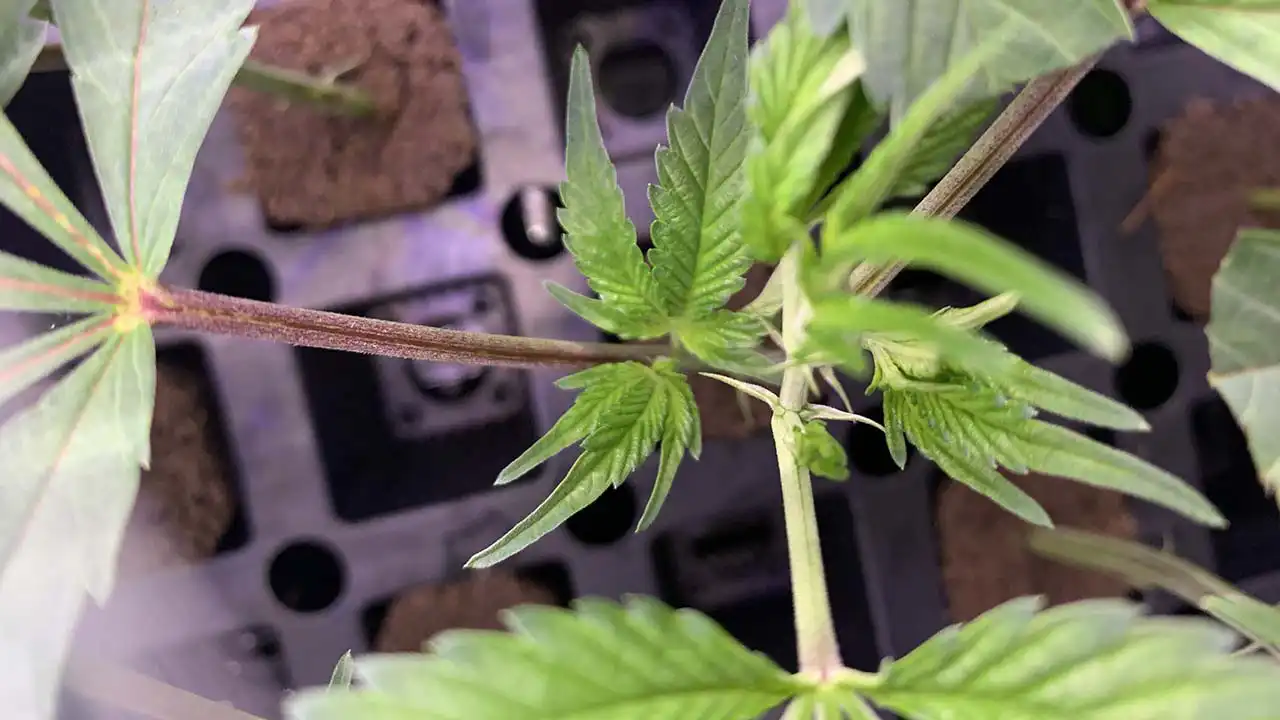To celebrate Women’s History Month, MJBizDaily invited influential women from across the cannabis industry to join a livestream event.
Guests included:
- Laura Fogelman, vice president of communications and public affairs at Pax.
- Tara Joseph, co-founder and chief financial officer at Big Plan Holdings.
- Chanda Macias, CEO of National Holistic Healing Center; CEO and chair of Women Grow.
- Caroline Phillips, founder and executive producer of the National Cannabis Festival; deputy director of Supernova Women.
- Susie Plascencia, founder of Latinas in Cannabis; co-founder and chief marketing officer of Mota Glass.
- Luna Stower, chief impact officer at Ispire.
We asked our guests questions about raising capital, social equity and what they wish they had known when they entered the industry.
What do you tell women who are interested in entering the cannabis industry?

Chanda Macias: I always tell people, “Start where you are.”
If you are in retail, you want to pivot in cannabis retail.
If you’re in accounting, look into cannabis accounting.
Make that jump over to the other side.
In this niche market, it’s incredible how your skill set is so needed.
We have so far to go with what cannabis will look like 20 years from now.
So, start your career today and just make that pivot from exactly where you are.
You can start incrementally – I don’t mean go out and quit your job today and then find a job in cannabis.
What I’m saying is take a step: “I’m going to consider doing this. I’m going to educate myself on that. I’m going to put myself in a better position.”
I’ve been in the industry over 10 years, and change is just inevitable.
The women in the cannabis community have supported me to where I am today.
It is my responsibility to give back in the same way.
This is really just the call to action: Jump in, don’t be afraid.
We have so much that we want to share and so much we can learn from each other.
How have capital constraints and other economic challenges been impacting women founders and CEOs?

Tara Joseph: Raising money is a big challenge.
When you are a minority or a woman, and you don’t have the ability to bring cash to the table, you have to raise it.
And in most situations, you are sitting down with people who are white males that are deciding whether or not you’re going to get that money invested into you.
When women ask for capital, they get very concerned about how they’re asking.
They lowball themselves, and it’s a big problem.
A man will ask for millions and millions of dollars right off the bat.
Women will ask for small increments along the way, and they feel like they have to give a whole story and reason why they’re even asking for that.
Rather than undervaluing yourself, you need to go out and show the world that you are valuable and what you’re asking for is that full amount.
When you’re coming to the table with investors, come with the answers ready … because they’re going to try to trip you up.
We have seen quite a few women get appointed to leadership roles in recent years, but often they’re appointed to lead companies that are in trouble. There’s a theory that women are set up to fail in this kind of environment. What’s your take on that?

Laura Fogelman: Moments of turmoil require really strong soft skills: things like collaboration, creative problem-solving, active listening – not just hearing, but listening, to really get to the crux of what a problem is and be able to bring solutions to it.
They say, “Never let a crisis go to waste,” and I think crises are often the moments where women have great opportunities to ascend to leadership roles, to take on new opportunities.
So, my message for anyone in the cannabis industry is: Now is a really great moment to take on leadership roles, to bring your unique skills to the table to solve problems.
We see a lot of women step into those roles because we are poised to meet this moment.
And I hope everyone looks around whatever environment they’re in and figures out ways to elevate women, because we’re going to be essential to solving some of these big problems.
There is a lot of diversity among nonexecutive cannabis workers, but that declines dramatically at the executive level. How do you see that changing?

Susie Plascencia: We have to make sure we are letting the next generation know that we have created the space for them to activate.
There are so many professionals out there who are waiting for a safe space and are not able to advance right now; there are people who are waiting for us.
We need to be doing more to create those safe spaces – and by safe, we’re not just talking about physical safety.
When I say safe, I’m talking about an opportunity to actually grow your career, to advance, to know that there is a future that is going to be fulfilling for me personally and financially as well.
As a Latina entrepreneur – and so many other women of color – we’re looking for generational wealth.
Women will leave the industry if it is not safe for us.
So, we need to do a lot right now and be proactive to retain talent so that they can stay in the industry and also attract future talent so those future executives can be diverse.
Do you think that women – consumers and employees – have safe spaces in the industry?

Caroline Phillips: There are a lot of different ways that we can talk about safe spaces.
But one thing that’s important to point out when I’m talking about the National Cannabis Festival and what we do to create safe and accessible experiences for people is that we may be the only cannabis event of our size that is owned and run entirely by a team of Black and brown women.
We have things like an LGBTQIA+ lounge, a veterans lounge, a seniors lounge.
We also have an opportunity to set a standard for the kinds of spaces that we create for women to thrive at the festival.
We do that through our educational programming across the festival site, through inclusion of many different nonprofit and for-profit organizations that represent women’s interests.
We also do deliberate things like work with our security team, how we talk to our audience and message our crowd, so that people do know that when they come to the National Cannabis Festival, this is an experience for everyone to enjoy and everyone to feel safe at and everyone to feel like they have a platform to share their voices at.
What do you wish you had known when you entered this space?

Luna Stower: This is not a handshake industry anymore.
The No. 1 thing that destroys women’s businesses or their morale is partnerships that do not have fully outlined expectations, deliverables, timelines, Plan Bs, addendums, all of it.
You want Exhibits A through Z – and yes, it might cost you a few grand in the beginning.
But it could save you hundreds of thousands of dollars, your life savings, your business and your peace of mind and your community.
When things go to collections, or AR is high, it doesn’t matter how close of a friendship you have.
You can’t scale and be sustainable or replicable if you don’t have your basic IP, your business plan and your products that you’re selling or delivering or purchasing.
That all needs to be covered under some kind of a contractor agreement – that is, a real legal document.
The last thing people think about is the lawyer, and it’s the first person you call when something happens.
And, by then, it’s usually too late.
This discussion has been edited for content and clarity, but the complete livesteam is available here.
Kate Lavin can be reached at kate.lavin@mjbizdaily.com.





